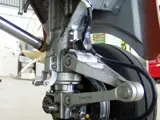AS9100 Compliance: Metal Certification Requirements for Aerospace Manufacturing
There’s no question that there is no margin for errors when thinking about construction as it relates to aerospace. Every bolt, every sheet of metal, every single component needs to meet exact standards. Getting AS9100 certification proves you can deliver that level of quality.
Understanding AS9100 Basics
Aerospace organisations must adopt AS9100 requirements which expand the definitions and specifications found in ISO 9001. The certification system represents a more demanding version of ISO 9001. The standards cover everything from raw material handling to final inspection. For metal manufacturers, this means tracking every piece of metal from the moment it arrives at your facility.
Supply Chain Requirements
The acquisition of materials from certified suppliers does not satisfy the requirements. You need complete traceability. You must present the complete picture of a particular aluminium batch when a customer requests information about it six months after delivery. The documentation must include heat treatment records together with chemical analysis certificates and physical test results.
Documentation and Record Keeping
The organisation of documentation proves essential for the system to operate smoothly. Every process needs documented procedures. This means:
- Metal storage conditions and handling processes
- Heat treatment parameters and records
- Testing procedures and results
- Non-conformance reports
- Corrective action records
- Staff training certificates
Keep these records for at least seven years. Some aerospace companies ask for longer retention periods.
Material Testing Standards
Testing goes beyond basic strength checks. You'll need:
- Chemical composition analysis
- Physical property testing
- Hardness testing
- Grain structure analysis
- Surface finish measurements
The execution of each test requires specialised equipment that must be calibrated along with operators who possess proper training. All recorded results should include unsuccessful tests.
Quality Control Processes
The aerospace industry requires more than random sampling techniques for its operations. The testing protocol for metal batches requires precise examination requirements. Your process must include inspection points at various locations. Your team members should learn how to detect product flaws. Write down every observation including those that do not impact quality performance.
Risk Management
The AS9100 standard puts heavy emphasis on risk management and prevention. You need systems to:
- Identify problems – prevention and action
- Assess the results of process changes – to stay compliant
- Monitor supplier performance – for consistency
- Track customer feedback – to improve processes
- Analyse production data for trends
Staff Training Requirements
Your team needs proper training. This includes:
- Understanding AS9100 requirements
- Material handling procedures
- Testing methods
- Documentation systems
- Quality control processes
Keep detailed training records. Schedule regular refresher courses.
Common Certification Challenges
Getting certified takes time. Most companies need 12-18 months of preparation. Common stumbling blocks include:
- Incomplete documentation
- Poor traceability systems
- Inadequate staff training
- Inconsistent process controls
- Missing calibration records
Prevention beats firefighting. Build robust systems from the start.
Maintaining Certification
The initial step of certification serves as the starting point. Your certification requirements are verified through the examination process. Between audits, conduct internal reviews. Look for ways to improve. Organisations need to maintain awareness about every industry requirement that undergoes changes.
Cost Considerations
AS9100 certification requires investment. Budget for:
- Documentation systems
- Staff training
- Testing equipment
- Calibration services
- External consultants Audit fees
The return comes from accessing aerospace contracts and reducing waste.
The Steps to Getting Started
Begin with a gap analysis. Compare your current processes with AS9100 requirements. Create an action plan. Set realistic timelines. Consider getting expert help for specific areas.
Aerospace manufacturing companies recognise AS9100 certification as their entry point to the industry. The certification demonstrates your ability to fulfil all industry standards for quality. Start preparing early. Build solid systems. Train your team properly. The investment yields improved products along with fresh business prospects.
Need more information? Get in touch

